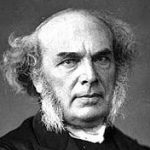Lesson Focus: This lesson examines some of the ways spiritually apathetic people mistreat God with their sinful attitudes and actions. They weary Him by accusing Him of being unjust, they turn away from Him and refuse to admit they have backslidden, and they rob Him by withholding what is rightfully His.
Do You Weary God?: Malachi 2:17-3:5.
[2:17] You have wearied the LORD with your words. But you say, "How have we wearied him?" By saying, "Everyone who does evil is good in the sight of the LORD, and he delights in them." Or by asking, "Where is the God of justice?" [3:1] "Behold, I send my messenger, and he will prepare the way before me. And the Lord whom you seek will suddenly come to his temple; and the messenger of the covenant in whom you delight, behold, he is coming, says the LORD of hosts. [2] But who can endure the day of his coming, and who can stand when he appears? For he is like a refiner’s fire and like fullers’ soap. [3] He will sit as a refiner and purifier of silver, and he will purify the sons of Levi and refine them like gold and silver, and they will bring offerings in righteousness to the LORD. [4] Then the offering of Judah and Jerusalem will be pleasing to the LORD as in the days of old and as in former years. [5] "Then I will draw near to you for judgment. I will be a swift witness against the sorcerers, against the adulterers, against those who swear falsely, against those who oppress the hired worker in his wages, the widow and the fatherless, against those who thrust aside the sojourner, and do not fear me, says the LORD of hosts. [ESV]
[2:17] The reproach of the people must not be interpreted in a positive sense. Their words were not intended to remind the Lord of His promises. They lack the character of true piety and devotion. These thoughts and words have wearied the Lord, they put His patience to the test. The people respond to the prophet’s accusation with amazement: How have we wearied him? The prophet responds by drawing the people’s attention to two aspects of their wearying words. They say all who do evil are good in the eyes of the Lord, and He is pleased with them; and they ask where is the God of justice? Thus according to the people’s opinion God approves of evil, and He is not interested in dispensing justice. But this is exactly the opposite of what God has admonished His people to do. They were emphatically prohibited to do evil in the eyes of the Lord and to provoke Him to anger; they were charged to do what is right and good in the Lord’s sight. The people’s reproach is elaborated in the parallel clause: and he delights in them. According to the people, the Lord not only endorses their evil conduct, but He delights in it. How foolish are these people. The Lord who, through Moses, charged the judges of Israel to judge fairly, not to show partiality in judging, not to pervert justice, is Himself the very embodiment of justice. Therefore it is sheer audacity even to suggest the denial of this fact. The expectation that God will dispense justice at the day of His coming is an integral part of the covenant relationship between Him and His people.
[3:1-5] Because of the seriousness and importance of the people’s accusation, the Lord Himself responds, first in general terms and then answering their twofold reproach. In connection with the people’s reproach in 2:17, the emphasis is on the certainty of the messenger’s coming. This notion rests upon an eastern custom of sending messengers ahead of a visiting king to inform the inhabitants of his coming and to pave the way, literally to remove all the obstacles. The identity of the messenger is unknown but could refer to John the Baptist. The identity of the king whom the messenger prepares the way is obvious. He is the Lord to whom the respect of the people was due, the One who has dominion over all, who is the most powerful One. That God is hereby indicated is apparent from the knowledge that He is returning to his temple or palace. The messenger of the covenant is a different individual from the first messenger who is the forerunner. It is apparent from the parallelism that the messenger of the covenant is identical to the Lord. The specific name messenger of the covenant indicates that he was of special significance to the covenant. The covenant is apparently the one which God made with Israel and in which the relationship between God and His people found its fundamental expression. The messenger of the covenant was destined to dispense both the covenant blessing and the covenant vengeance. The people thought that the day of the Lord must inevitably be a day of light and blessing for the people of God. This was Israel’s great and abiding error. Their conclusion, drawn from a legitimate theological premise, was at fault. God’s relationship with them was not automatic and mechanical. Because of their sins the people in reality became the object of the covenant vengeance instead of blessing. Behold, he is coming, says the Lord of hosts emphasizes the certainty of the messenger’s coming. With increasing emphasis and by way of perceptive questions the prophet conveys the thought that it is not a trifling matter to long for the coming of the Lord. His coming would not only be unexpected but also unpleasant. Who can endure the day of his coming, and who can stand when he appears? Note the parallel structure of these two sentences. The interrogative pronoun , who, which is repeated for the sake of emphasis refers back to the speakers of 2:17. The rhetorical questions suggest a negative answer: Nobody!. No one will be able literally to grasp or endure the day of His coming, no one will be able to remain standing, to uphold and assert himself when He becomes visible, when He appears. In the following sentences the prophet provides the answer to the twofold reproach of the people. First, that God approves of evil: when He comes, quite unexpectedly, they would experience just the opposite. He will be like a refiner’s fire and like fullers’ soap to remove all impurities and unclean elements from His people. It is evident that the coming of the Lord will serve to purify and refine the covenant people from within. In verse 3 the rhetoric is continued, but it is modified in that the Lord is now compared not with the fire of the refiner but with the refiner himself. The silver and goldsmiths of that time sat bending forward over their small melting furnaces to ascertain from the color of the metal whether it was pure. The meaning of this text is that the Lord will refine His people just as expertly as a silversmith. The objects of this refining process are the sons of Levi which represent the priests who attend to the service in the temple, precisely that temple which the Lord will suddenly visit. They were the mediators between God and His people and they are responsible for the religious decline of the people. Thus the purification of the people has to start with them. The fact that the people themselves were also included in this act of purification is evident from verse 4. The first part of verse 4 is parallel to the last part of verse 3: offerings in righteousness to the Lord and offering … pleasing to the Lord. Once the purification process has been completed then both the priests and the people will bring offerings that are acceptable to the Lord. Judah and Jerusalem, the state and the capital, indicate and represent Israel as a whole. Days of old … former years would refer back to those times in the history of Israel when acceptable sacrifices were offered to the Lord by both the priests and the people. Malachi now turns his attention to the second reproach of the people, their question, Where is the God of justice? The Lord’s answer to their question is now given: I will draw near to you for judgment [5]. The reality and seriousness of God’s judgment are expounded in connection with several categories of sinners. The Lord will come unexpectedly as a swift witness, as one who is going to testify against the evildoers, but who will be at the same time prosecutor and judge. The sins which are here enumerated were of a serious nature and in specific cases punishable by death. The summary of the various categories of sinners is concluded with a reference to the deepest cause of the people’s sinfulness: they do not fear God. The speakers of 2:17 wanted to make God subservient to the secularized interests of their own existence, to have prosperity for the sake of prosperity, and even the coming of the Messiah had to serve their own political interests. Even in their eschatological expectations they were taking the covenant relationship between God and themselves for granted; they thought that He was bound to bless them if they served Him in a mechanical way, in spite of all their sins which the prophet enumerated in 1:6-14; 2:1-9, 10-16; 3:5. The lesson of this section is that such words and such an attitude weary the Lord. Their disillusioned expectations were really false expectations. They were drawing the wrong conclusions from a formally correct premise. The Lord will come on His day, not automatically to bless them but to purge them. His coming will be unexpected and unpleasant. The question is not whether God approves of evildoers, but whether the priests are offering sacrifices according to the stipulations of the law and whether the people fear the Lord.
Do You Turn from God?: Malachi 3:6-7.
[6] "For I the LORD do not change; therefore you, O children of Jacob, are not consumed. [7] From the days of your fathers you have turned aside from my statutes and have not kept them. Return to me, and I will return to you, says the LORD of hosts. But you say, ‘How shall we return?’ [ESV]
[6-7] According to Malachi, it is a certain truth that the Lord does not change. The perfect tense stresses this truth as a fact of history but also as significant for the present. The Lord had not changed in the past and this is also applicable in the present time. The unchangeableness of God is balanced by what is said of the children of Jacob as not being consumed or destroyed. Because the Lord has not changed in His love for His people, the children of Jacob are not destroyed. Israel’s continued existence is due to God’s unchangeable love. The real cause of their predicament must be sought elsewhere. The people’s reproach that the God of justice approves of evildoers [2:17] is flatly denied. He does not change, especially not in his awareness of sin. God was fully conscious of the total history of their waywardness. From the days of your fathers embraces the whole history of the covenant people, and therefore need not be restricted to a specific period in Israel’s history. The point of reference is that Israel’s waywardness was a pervasive theme through their entire history. They have sinned habitually and continually. The people have turned away from the statutes of God and that turning away consisted in their not keeping them. Because of their sins the people have turned their back to God. It is essential for the covenant relationship that God and people should again turn to one another: Return to me, and I will return to you. The transgressions of the people were the cause of God’s turning away from them, the reason why He was no longer pleased with them. If they repent, He is eager to confirm by His own turning to them that He still loves them and that He has not changed in His covenant relationship to them. In the customary objection the people expressed their surprise at the necessity of repentance: But you say, How shall we return? They are not aware of any shortcoming on their side. This appeal to ignorance concerning their misbehavior characterizes the very nature of the people’s waywardness and reveals a lack of guilt consciousness.
Do You Rob God?: Malachi 3:8-12.
[8] Will man rob God? Yet you are robbing me. But you say, ‘How have we robbed you?’ In your tithes and contributions. [9] You are cursed with a curse, for you are robbing me, the whole nation of you. [10] Bring the full tithe into the storehouse, that there may be food in my house. And thereby put me to the test, says the LORD of hosts, if I will not open the windows of heaven for you and pour down for you a blessing until there is no more need. [11] I will rebuke the devourer for you, so that it will not destroy the fruits of your soil, and your vine in the field shall not fail to bear, says the LORD of hosts. [12] Then all nations will call you blessed, for you will be a land of delight, says the LORD of hosts. [ESV]
[8-12] Israel’s attitude toward and use of their possessions was one indication of the health of their relationship with God. The Old Testament refers to the land over a thousand times, and the vast majority of these references are to the land of Canaan, the land that God promised the fathers, the land He gave Israel, the land where He would bless His people. How Israel regarded and treated the land and its produce was a central feature of their responsibilities under God’s covenant. Ownership of land came to represent participation in the covenant community to whom God had given the land. But that ownership had to be legitimized by an attitude of faith and gratitude toward God shown by one’s proper use of the land. This especially involved keeping the Sabbath and participation in festivals of joy with gifts to God. It also involved the bringing of tithes through which the landless priests and Levites were provided for. Although God gave Israel the land as their inheritance, He made it clear that it was actually a stewardship. One reason for this was the sinful human tendency to disconnect the gift from the giver. How they regarded and treated the land would demonstrate whether they acknowledged His lordship over them, their dependence on Him, and their gratitude toward Him. The term tithe means tenth part. Moses had instructed Israel that every tithe of the land, whether of the seed of the land or of the fruit of the trees, is the Lord’s; it is holy to the Lord [Lev. 27:30]. After Israel settled in the land they were to bring the tithe annually to the sanctuary and consume a portion of it, leaving the remainder with the Levites, who were to share a tithe with the priests. If the land and its produce belonged to God, then all the more so did the tithe. Therefore to withhold it amounted to robbing God. Verse 9 amplifies the charge that Judah was robbing God by pointing out two additional facts. The first is that they were doing this even though, like the Levites in 2:2, God had already begun to discipline them with the curses He had warned them about a thousand years before. In spite of the self-destructive nature of their behavior, they continued inviting the divine curses by plundering the divine storehouse. Clearly their failure to give what they owed to God was resulting in His withholding from them what they thought He owed them. The second additional fact added by verse 9 to the accusation of verse 8 is that the entire nation was guilty. Malachi emphasizes here that Judah’s waywardness was not limited to a few. The whole nation was guilty before God and therefore was in a dangerous spot. Were it not for the Lord’s faithfulness, of which he reminded them even at the beginning of the prophecy, Israel would be ruined. The command in verse 10 is for God’s people to bring the full tithe into the storehouse, and the result is that there may be food in my house. The storehouse is an extended hallway divided into numerous rooms for storage of tithes consisting of grain, wine, and olive oil. Specifying the full tithe suggests that many were either withholding part of the tithe or were bringing nothing. The second half of verse 10 begins with the Lord’s command to test or prove Him and discover that He is faithful. The divine response to the people’s faithful obedience would be the opening of the windows of heaven and the pouring on them an abundance of blessing to meet their need. Verse 11 contains the second aspect of the divine promise to open the windows of heaven. Not only did that mean God would pour out abundant blessings; it also means that He would rebuke the devourer of their crops. Thus God will protect their produce from ruin and their vines from barrenness. Two results of Gods’ rebuking the devourer are specified. Verse 12 ends with the third divine quotation formula in this section, marking its conclusion and underlining its significance. This verse contains the result of God’s opening the floodgates of heaven in verse 10. Here the Lord’s blessing of His chosen and promised land would cause it to become a source of delight to its inhabitants but also to the God who had created, bestowed, and beautified it. The issue in Malachi 3:7-12 is not tithing but apostasy. Judah is charged here with abandoning the God who had chosen and blessed them and turning away from the statutes He had given them to test their loyalty and to mark the path of life He would bless. By retaining for themselves the tithes and other offerings they owed to God, the people showed their idolatrous hearts in placing themselves before God, and they showed their callous hearts in leaving the Levites and landless poor to fend for themselves.
Questions for Discussion:
1. In 2:17-3:5, the people made a fatal mistake. They thought that they had the right to question God’s character and actions just because they were covenant people. In 3:5, the Lord states that the cause of such sinful, audacious behavior is that the people do not fear the Lord. The people have lost their sense of awe and reverence before the sovereign Lord. This is a very real danger for people today who claim to be God’s people because they may go to church, seek to serve God, give offerings to God, etc., yet they do not truly fear the Lord. What can we do to make certain that we do not lose our sense of awe and reverence before our Lord?
2. Meditate upon the importance of God’s unchangeableness for your physical and spiritual life. Think about the strength and comfort that you receive due to this fundamental truth concerning God’s character. But also think about what God’s unchangeableness also says about His judgment concerning sin. There are many people today (including those within the church) who think that God’s view about certain sins have changed and He will no longer judge those sins. Yet this is not the teaching of God’s Word. God’s moral law is unchanging.
3. The people’s unfaithfulness in their tithes and contributions was really just a symptom of a more serious sinful condition of their hearts. What was the main issue in 3:7-12? Do you see how this issue is at the heart of all our sinful behavior?
References:
Malachi, E. Ray Clendenen, NAC, B & H Publishers.
Malachi, Peter A. Verhoef, NICOT, Eerdmans.
Malachi, Douglas Stuart, Baker.

















